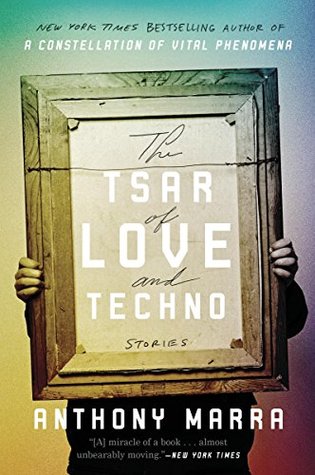More on this book
Community
Kindle Notes & Highlights
By the time we were old enough to mistake ourselves for men, I’d already turned toward Bolshevism. Vaska found comfort in the Orthodox Church. We idolized the dead martyrs of our respective causes.
Q: Why would you betray the great socialist future? A: Because the future is the lie with which we justify the brutality of the present.
I have become a violent act of reality inflicted upon the fiction of which we are both citizens.
They will put me in a car, take me to the edge of a pit not unlike those into which the disgraced dancer and Vaska fell, and with a bullet through my brain stem, I will also fall. Consider the disgraced dancer. Consider those who informed on her, those who relayed the information, those who approved the action, those who knocked on her door in the middle of the night, those who arrested her, those who photographed her, those who took her fingerprints, those who pulled out her shoelaces, those who interrogated her, those who beat her, those who engineered her confession, those who tried,
...more
We have some experience with this kind of man, not bureaucratic mass murderers, of course, but with alcoholic boyfriends, violent husbands, strangers harboring the misconception that their unwanted advances are compliments.
Our parents called the music capitalist pollution, as if the cancerous masses on the X-rays had been caused by a song recorded on the other side of the world, rather than by the pollution that flowed from the smokestacks just outside our windows, free for us all.
We were so awkward, morning pimples in the mirror, hair where we never wanted it, and we thought of the lung cancer X-ray that was the album art for Surfin’ Safari, considered the ways a body betrays its soul, and wondered if growing up was its own kind of pathology. We fell in and out of love with fevered frequency. We constantly became people we would later regret having been.
But we really shouldn’t be so harsh: If she were anyone else’s granddaughter, we wouldn’t think twice about her dancing like the victim of an inner ear disorder.
Nadya hasn’t any appointments, but she’ll try to meet with a half-dozen eye surgeons in Petersburg next week. If there is an operation, and if that operation is successful, she says she will move to Sweden. I fear for her future in a country whose citizenry is forced to assemble its own furniture.
He ticks off Teutonic inhumanities inflicted on western civilization: Karl Marx, Adolf Hitler, Claudia Schiffer. “A country whose main export is bad ideas and they still manage to build better engines than us.”
Kolya rights himself and looks around. A green staircase of terraces ascends the ridge. Far below, a ragged trail of white rocks tapers into a backwash of muddied branches. They’re in fuck-knows-where Chechnya, on an operation that might be the stupidest Kolya has ever encountered in a career that’s been a highlight reel of futility.
We’d buy a mansion on the Riviera, and I’d learn how to do all the things the nouveau riche do, like buy cuff links and belittle the work ethic of the poor.
The headphones, volume cranked to ten, formed a cocoon nothing could pierce: not Kolya’s bullying, not my father’s deepening depression, not even my mother’s memory, which could sharpen suddenly at the sight of soapsuds, and leave me impaled on sorrow.
Suddenly I was the yak-humping bumpkin from the Republic of Whogivesafuckistan and he was, well, the kind of person I wanted to be.
Our fellow drivers took the lane markers as well-intended but misguided suggestions they freely ignored.
When she saw her first wheelchair ramp in LAX, she had mistaken it for some kind of weird public sculpture. When she learned what a wheelchair ramp was, when she learned that they were mandated by law, she felt a pure rush of patriotism for a country she’d only been living in for a few hours.
What my father lacked in education, he made up for in opinions. I silently prepared to hibernate through the long winter of his lecture.


